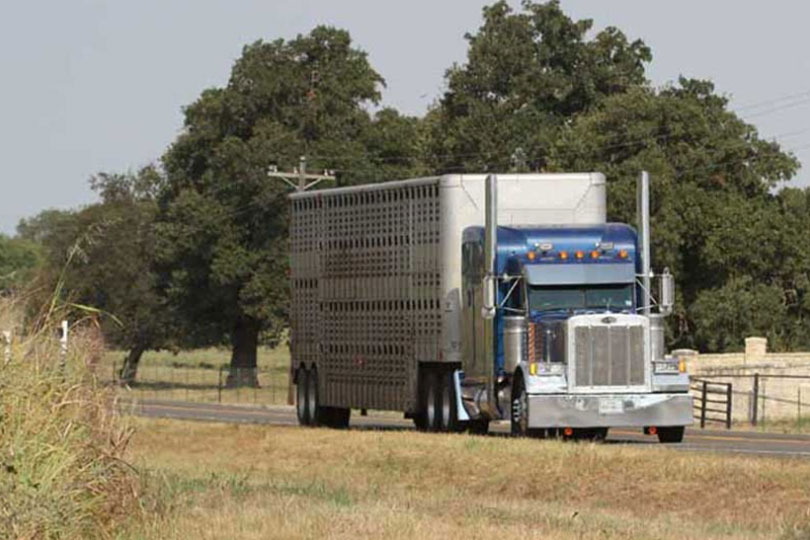By Emmy Powell
Communications Specialist
Livestock haulers have continued to face a number of transportation issues this year.
Delaying the Electronic Logging Device (ELD) mandate, flexibility in hours of service for truckers and increasing truck weights on federal highways are a few of the challenges on the list.
Livestock groups, including Texas Farm Bureau (TFB) and National Cattleman’s Beef Association (NCBA), are working to address these issues.
“We are looking to get that very important Electronic Logging Device delay for our livestock haulers through the appropriations process,” Allison Rivera, executive director of Government Affairs for NCBA, told the Texas Farm Bureau Radio Network. “We have already started down that path to make that request. That current exemption ends on Sept. 30. So, we have to get an appropriations package of some kind across the finish line before then to make sure that we maintain that very important ELD delay for livestock haulers.”
The current ELD mandate took effect December 2019 and agricultural exemptions expire in September.
TFB, NCBA and other agricultural groups are working to ensure regulations are flexible enough for livestock haulers to safely and efficiently do their jobs.
Current exemptions allow drivers who transport agricultural commodities to be exempt from hours of service rules until they are outside of the 150 air-mile radius (172 road miles) of their starting point for the day.
The Infrastructure Investment and Jobs Act of 2021 included an additional 150 air-mile exemption on the backend of livestock hauls to provide further flexibility during the unloading period.
“We also continue to look for flexibility within the hours of service that all of trucking has to follow for livestock haulers,” Rivera said. “We achieved that backend 150 air-mile exemption in the infrastructure bill. It’s been helpful to get a little bit of extra drive time at the end of hauls to your final destination, but we still have to keep the pedal to the metal.”
NCBA is working with a coalition on the Safer Highways and Increased Performance for Interstate Trucking (SHIP IT) Act to expand the trucking workforce and offer more flexibility.
“We have to be able to put more cattle safely on trucks and get them moved,” she said. “The SHIP IT Act would allow heavier trucks on the federal highways so that heavier trucks are not driving by schools and churches on those side roads. We’re looking at 91,000 pounds on six axles.”
Texas roads have an 81,400 pound maximum weight for trucks with five axles.
“We hope the SHIP IT Act can get across a finish line, and we can get that higher truck weight. A lot of states are already running heavier. There are states up in the northeast that their state limit is 100,000 pounds,” Rivera said.
TFB continues to advocate for farmers, ranchers and livestock haulers, too.
“It’s important to resolve these transportation issues,” TFB National Legislative Director Laramie Adams said. “Hauling livestock is very different from hauling consumer goods, so it’s essential for Congress to delay the ELD mandate, expand hours of service flexibility and increase weight limits. These changes not only benefit livestock haulers, but all who haul agricultural commodities.”

